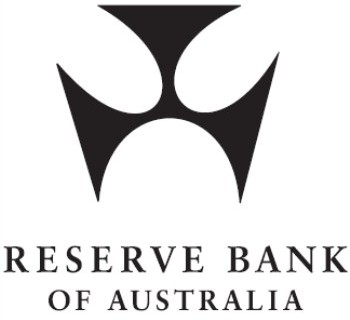Contents
Most banks prefer not to issue non-recourse loans as it could leave them with a loss. A recourse is a legal agreement that gives the lender the right to pledged collateral if the https://1investing.in/ borrower is unable to satisfy the debt obligation. Recourse lending provides protection to lenders, as they are assured of having some repayment, either in cash or liquid assets.
Understanding the difference between “with recourse” and “without recourse” terms in a letter of credit transaction. If someone is misappropriately – appropriately identified, they have legal recourse to take action to do this. A negative pledge clause prevents a borrower from pledging any of its assets to another lender if doing so gives existing lenders less security. Regardless of whether a debt is forgiven, the borrower must report a loss or gain based on the difference between the original loan amount and the amount realized in the sale of the asset.
Write down the details of the complaints like the time, titles of people you spoke to receipts, warranties, dates, bills and, guarantees. Resources Online resources to advance your career and business. These types of payments should be covered with a formal indemnity. To Instagram to publicize their business, LinkedIn stories have arrived to help professionals share their on-the-fly moments. The word in the example sentence does not match the entry word.

A lender is most able to impose a recourse debt agreement on a borrower when the borrower is unable to obtain financing elsewhere on better terms, and especially when the borrower is in difficult financial circumstances. Conversely, a borrower may be able to demand non-recourse debt terms if it can select from many lenders and has such excellent financial results and asset reserves that it can justify its demands. Some states have non-recourse mortgage laws, such as North Carolina and Texas.
Do Banks Do Non-Recourse Loans?
Investopedia requires writers to use primary sources to support their work. These include white papers, government data, original reporting, and interviews with industry experts. We also reference original research from other reputable publishers where appropriate.
Similarly, if a draft states that it is drawn without recourse, the drawer is not liable to pay, subject to various conditions, if the draft is dishonored, provided that it is not a check. The five Cs of credit are character, capacity, collateral, capital, and conditions. The five Cs of credit are important because lenders use them to set loan rates and terms. With recourse and without recourse are two terms defining whether or not the paying bank shall claim refund from the beneficiary in case it could not get reimbursement from the issuing bank.

Recourse is the right of the holder to recover against a prior endorser, who is secondarily liable. When a check is endorsed without recourse, it signifies that the endorser will not be liable to pay in the event that payment is refused. In a loan sale, a bank makes a loan and then sells the loan, without recourse, to a third party.
Swift Messages in Letters of Credit
They will direct you to the specific institution that will deal with the issues in an appropriate way. Until you get a solution for the issues, the process is far from over. Peggy James is a CPA with over 9 years of experience in accounting and finance, including corporate, nonprofit, and personal finance environments. She most recently worked at Duke University and is the owner of Peggy James, CPA, PLLC, serving small businesses, nonprofits, solopreneurs, freelancers, and individuals. Resource, resort, expedient, shift, makeshift, stopgap mean something one turns to in the absence of the usual means or source of supply. Needs to review the security of your connection before proceeding.
- Regardless of whether a debt is forgiven, the borrower must report a loss or gain based on the difference between the original loan amount and the amount realized in the sale of the asset.
- One on one contact is preferred if the business is within your locality.
- Side collateral is a pledge of either a physical or financial asset to partially collateralize a loan.
- The right to collect from a maker or endorser of a negotiable instrument.
- Adverse Claim means a lien, security interest, charge or encumbrance, or other right or claim in, of or on any Person’s assets or properties in favor of any other Person.
When filing their taxes, the borrower must report as ordinary income any part of a debt that is forgiven by the lender. Julia Kagan has written about personal finance for more than 25 years and for Investopedia since 2014. The former editor of Consumer Reports, she is an expert in credit and debt, retirement planning, home ownership, employment issues, and insurance. She is a graduate of Bryn define recourse Mawr College (A.B., history) and has an MFA in creative nonfiction from Bennington College. Secured Recourse Indebtedness means Secured Indebtedness for which recourse for payment is to Parent, Borrower or any Guarantor, other than the Obligations. The American Heritage ® Dictionary of the English Language, Fifth Edition copyright ©2018 by Houghton Mifflin Harcourt Publishing Company.
Recourse in a Sentence 🔊
Specify on the dates that you would like the solution to have taken place. Include the brand name of the product, the date, time, place of purchase, serial number of product, warranties, and such details. If the business is not too close or you are unable to have a face to face contact, then make a phone call.
A non-recourse loan is one where the lender cannot seize more than the collateral offered. If a loan is with recourse, the lender has a the ability has the ability to fall back to the guarantor of the loan if the borrower fails to pay. For example, Bank A has a loan with Company X. Bank A sells the loan to Bank B with recourse. If Company X defaults, Bank B can demand Bank A fulfill the loan obligation. Borrowers who have non-recourse loans generally must pay higher interest rates than recourse loans in order to compensate the lender for undertaking the additional risk. The lender only has a legal right to the pledged collateral.
If the partnership has outstanding debt and cannot cover its loans, if it is a general partnership, it means that the lender can go after the personal assets of the partners if the collateral does not cover the outstanding amount. If the partnership is a limited liability company , then there is only limited recourse, and the lender cannot go after the personal assets of the partners. Recourse loans are distinct from non-recourse loans, which limit the lender to claiming only the specific asset pledged as collateral. If a borrower defaults on a non-recourse loan and the value of the collateral does not cover the amount the borrower owes, the lender cannot attempt to recover the balance by seizing the borrower’s other assets.
Example Sentences
Non-recourse loans may have stricter terms, higher rates, and other conditions recourse loans will not have. The right to collect from a maker or endorser of a negotiable instrument. The endorser may add the words “without recourse” on the instrument, thereby transferring the instrument without assuming any liability.
The language specifies the recourse actions the lender may take along with any limitations. For example, if a lender forecloses on a house to recover a $150,000 debt and sells it for $125,000, the borrower still owes $25,000. If the lender forgives the $25,000, the borrower must report this amount as ordinary income for tax purposes. Under Article 3 of the Uniform Commercial Code, the phrase without recourse on a negotiable instrument limits the liability of the endorser or drawer. If an endorsement states that it is made without recourse, the endorser is not liable to pay, subject to various conditions, if the instrument is dishonored.
However, a recourse debt gives the lender the recourse to pursue additional assets of the borrower beyond the value of the collateral if it is necessary to recoup its losses on the loan. It leaves them vulnerable to losses if their customers default on their loans and their collateral proves insufficient. If there’s a balance due after selling the asset collateralized with the loan, the lender has to take the loss. It has no claim on the borrower’s other funds, possessions, or income. Both recourse and non-recourse loans allow lenders to seize collateralized assets after a borrower fails to repay a loan. Recourse debt in a partnership means that a partner or multiple partners may be personally liable for the outstanding debt in a partnership.
Recent Comments